On October 1, 2024, Microsoft has officially released Windows 11 version 24H2, also known as "2024 Update", to everyone. It is the most AI-focused update for the OS to date, as it brings with it several AI feature previously not seen in any of the Windows versions. It is a huge major release, and not an enablement package like several releases prior to it. Installing 24H2 will cause your device to perform the full build upgrade.
Advertisеment
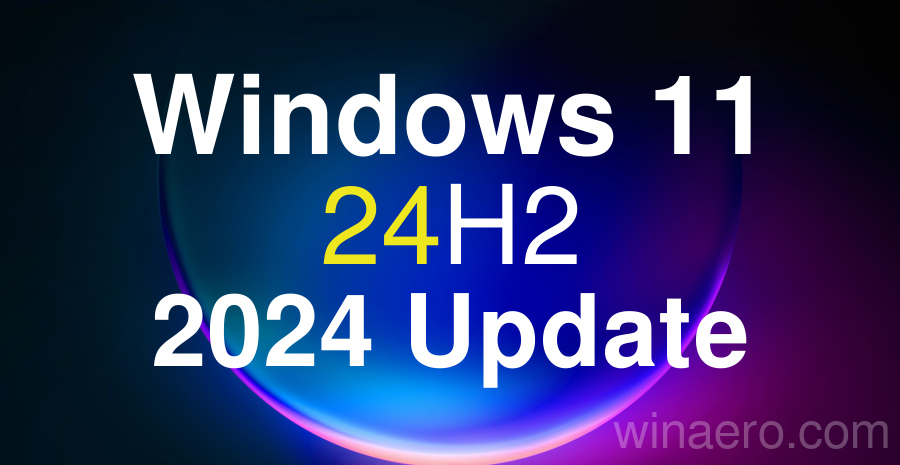
Here are the changes introduced in Windows 11 24H2. First of all, lets review the features that Microsoft finds the most important. Secondly, we will review extra details and changes in the app.
However, before we proceed, keep in mind that some of these features are coming gradually. It means that at the beginning of the roll-out some those are only available to select users. It may take months before they will become accessible to every single user. Also, Microsoft often backports new features via cumulative updates to older releases. So some 24H2 changes may appear in 23H2.
AI features
There are a number of new apps and app updates supercharged by artificial intelligence included in this release. Some of them require new processors with an NPU to accelerate AI data processing. Here are the features.
Windows Recall
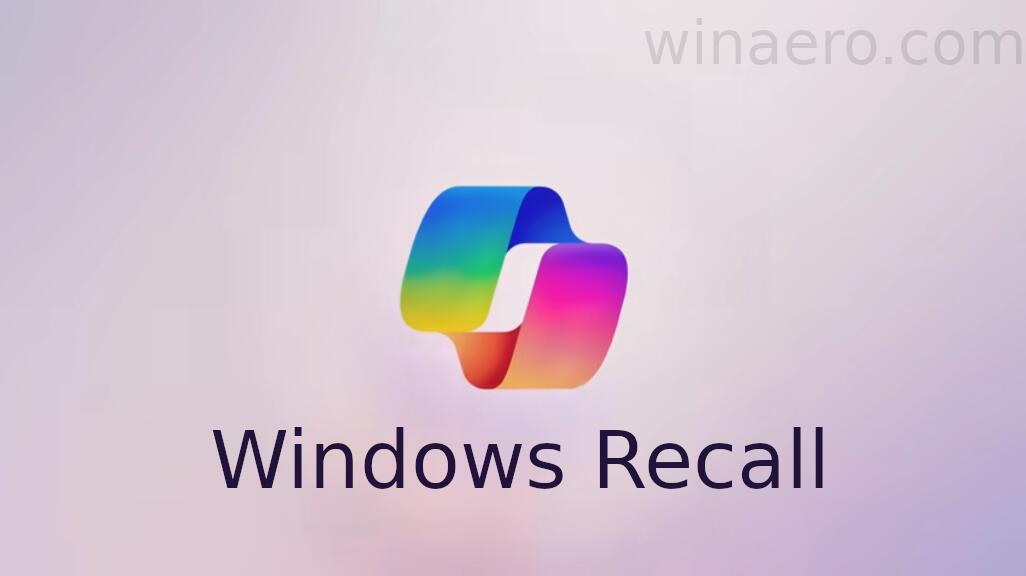
Recall is one of the most significant new features in Windows 11. Every few seconds, it takes screenshots of your screen and uses artificial intelligence to analyze and sort the information. It all ends up in a semantic index stored on your local device. You can then search for any data that has ever appeared on your screen using natural language queries.
For example, if you're looking for a document that your colleague Bob sent in Slack, simply type "find that file Bob sent me in Slack a few weeks ago" and Recall will return search results based on the information it has captured and processed.
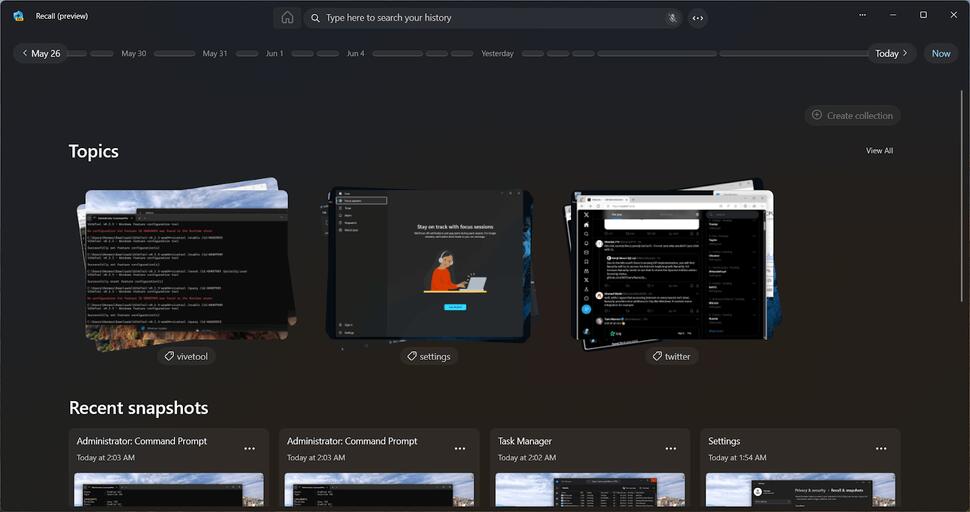
The Recall feature requires a Copilot+ PC that has an NPU.
Microsoft pitched Recall as a killer feature that would boost sales of Copilot+ PC devices. At first, it was supposed to be a temporary exclusive for computers with Snapdragon X ARM processors.
The Windows Recall release, originally scheduled for June 18, 2024, has been delayed due to security issues. Experts who got access to the initial version of Windows Recall quickly discovered that the feature saves data in an unencrypted form. So this changed.
The company recently announced a new version of Recall. It now includes advanced encryption and Windows Hello authentication. Its data is now secured in a VBS Enclave, making it inaccessible to third-party apps and users. Additionally, snapshots will automatically exclude sensitive information such as passwords and credit card details. Microsoft makes emphasis on that Recall does not upload any data to the cloud and can be easily uninstalled if you choose not to use it. The company plans to start its testing by the end of October 2024.
Windows Copilot
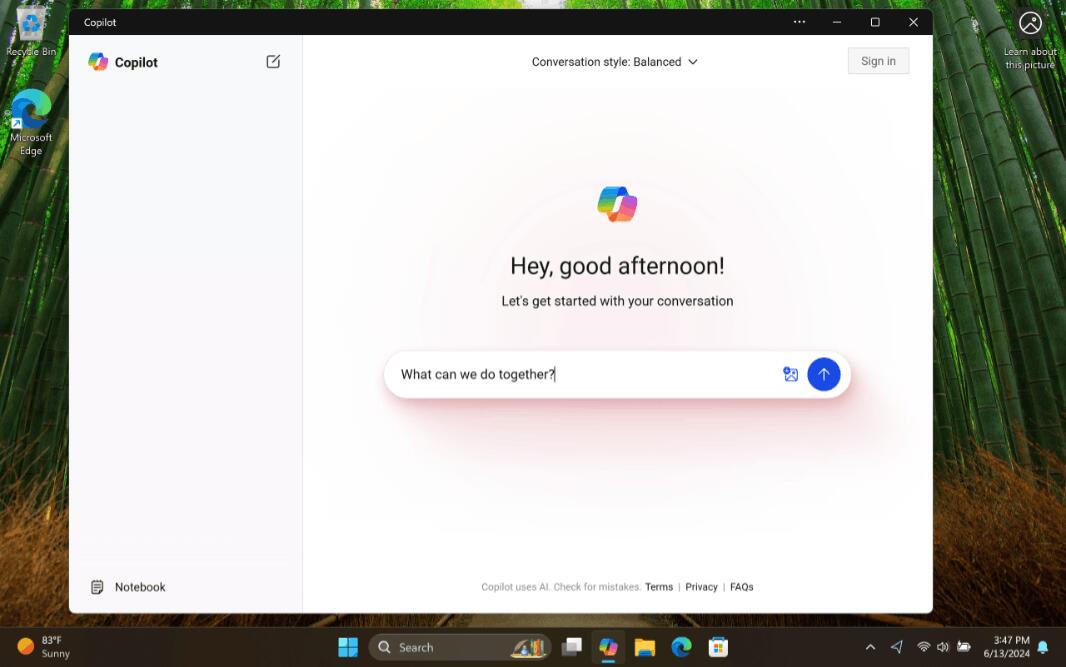
Windows Copilot is now a full-fledged web app (PWA) that can be opened anywhere on the screen, resized, and even minimized to the taskbar. The app is no different from the chatbot available at copilot.microsoft.com.
However, this is hardly an improvement. The new version of Copilot has lost its tight integration with the operating system. You will no longer see a sidebar on the right side of the screen, you will not find a system chatbot icon on the taskbar, you will not be able to launch it using the WIN + C keyboard shortcut, and you will not be able to use Copilot to change system settings.
Microsoft has abandoned its initial plans to integrate Copilot into the operating system, but the chatbot is not going anywhere. Now the company intends to integrate Copilot directly into applications. The assistant will appear only in cases where it can really help. For example, in the Settings app, you will be able to see suggestions for solving common problems or changing certain settings.
Live Captions
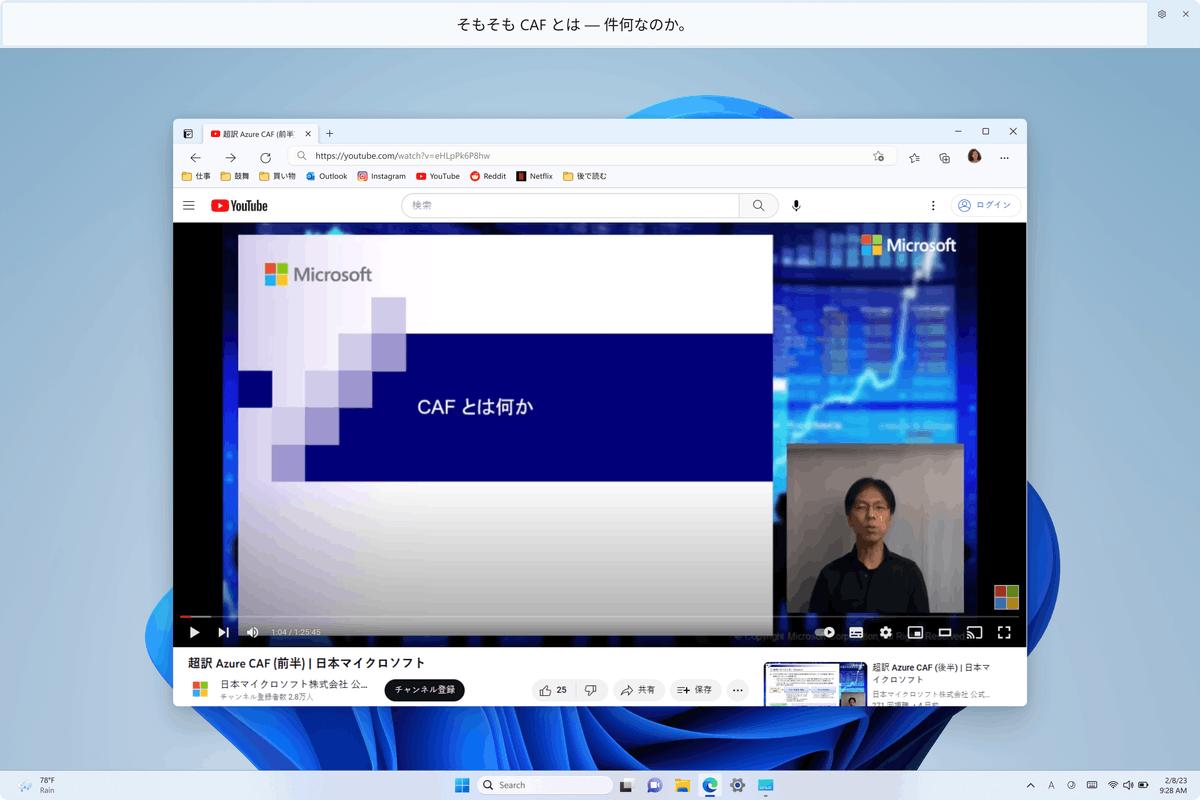
Live Captions now uses advanced AI algorithms to generate subtitles for over 40 languages, locally and in real time, without the need for an internet connection. This works for both audio and video formats.
Windows Studio Effects
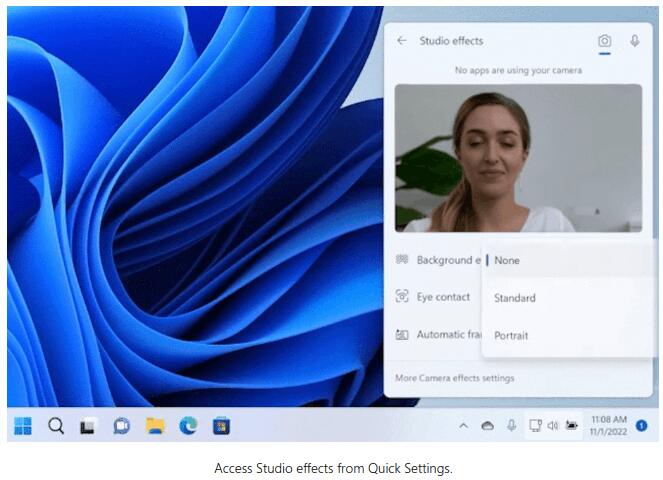
Copilot+ PCs Devices also get a new set of AI-powered Windows Studio Effects. They are integrated into the operating system and available in all popular video calling apps, such as Microsoft Teams, Zoom, Skype, and Google Meet.
Windows Studio Effects can be applied via the quick settings menu on the taskbar. For example, you can adjust lighting, blur the background, improve sound quality, and so on.
Object eraser and generator in Paint
Microsoft is introducing new tools powered by generative AI: Cocreator and Generative fill and erase.
Cocreator will help you bring your artistic ideas to life, even if you are not a professional artist. Just draw a basic outline, describe to Cocreator how you see the finished image in natural language, and it will generate it based on your sketch.
Microsoft is also adding generative fill and erase features to Microsoft Paint as part of new Windows AI capabilities, expanding Cocreator functionality of the app. Users can now select areas of images to remove.
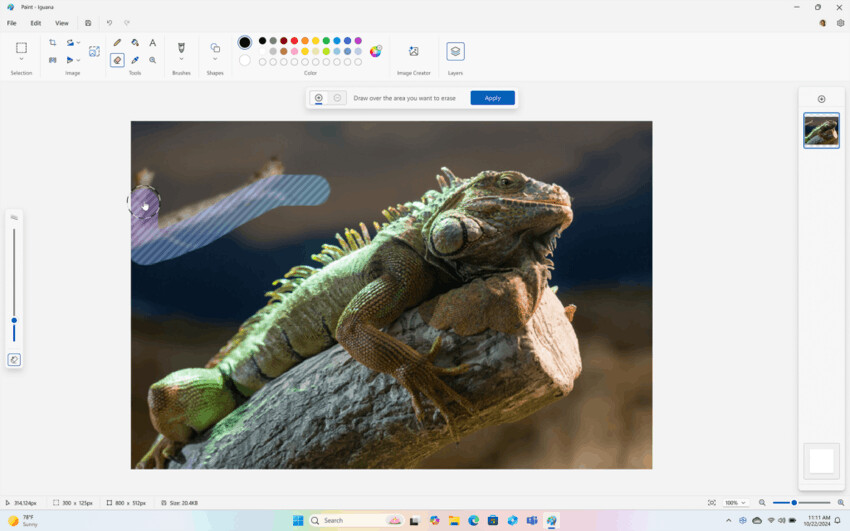
In addition, it has become formulate a verbal query to make Paint add the desired element to the image or to its selected area. The "Looks good" option allows you to accept the proposed result or request its regeneration.
AI Features in Photos
Super Resolution
This AI powered feature of the Photos app will allow you to transform your lower-resolution and older photos into high-quality images without the worry of blurriness or pixelation. You can increase the resolution by up to 8X. The process is hardware accelerated. With a powerful 40+ TOPS NPU, you can upscale your photos to 4K in seconds. Finally, you can instantly compare the processed image with the original one in the same view.
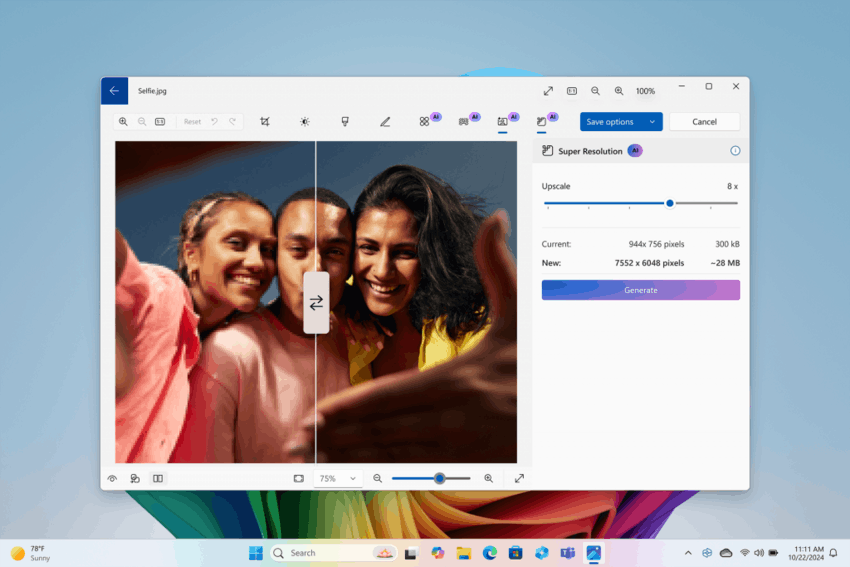
Designer integration
- When you click the Edit in Designer button, the app will open its options inside the Photos app instead of in your default web browser.
- AI will automatically recognizes objects in the photo so you can easily work with them. You can remove objects from the image, blur the background to create beautiful portraits, apply automatic cropping, experiment with text, and so on.
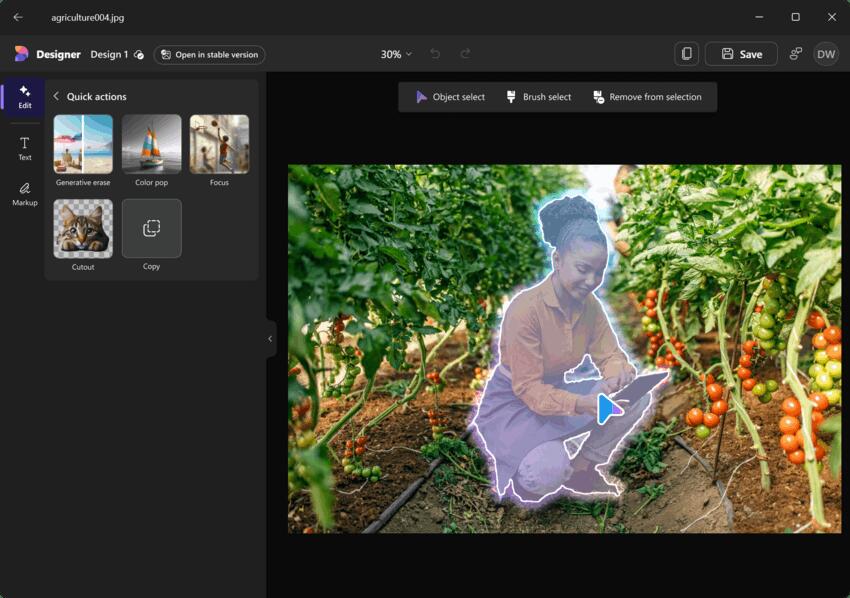
Image credits: Microsoft - Besides, you can use classic filters, adjustments, and editing.
Voice Clarity
Voice Clarity is another AI-powered feature that is designed to eliminate background noise, cancel echoes, and reduce reverberation in real time during voice calls and audio recordings. This feature works automatically in supported apps and does not require any configuration. It is only available on devices with a neural processing unit.
Auto Super Resolution
Auto Super Resolution is an alternative to technologies like Nvidia's DLSS and AMD's FSR. It allows you to increase frame rates in games by automatically reducing the rendering resolution and then upscaling the image to a higher resolution using artificial intelligence.
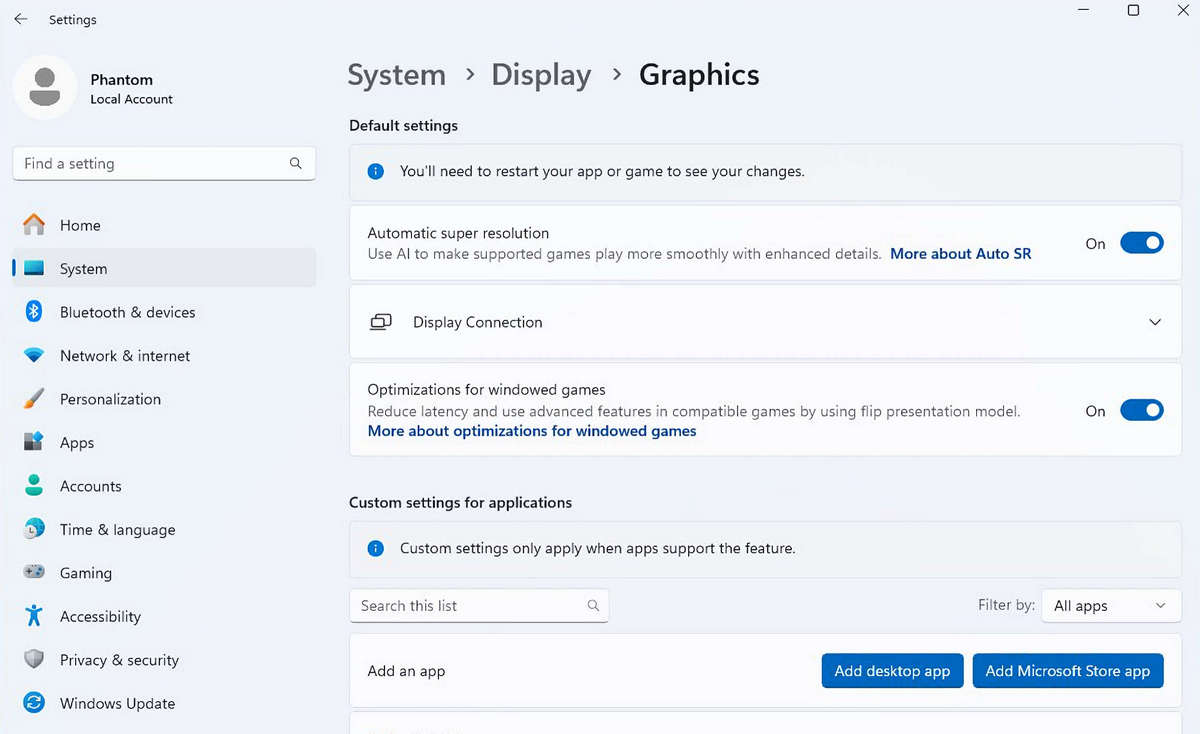
This is an exclusive feature for Copilot+ PCs with Snapdragon X Elite processors, and may become available in the future for computers with the latest Intel and AMD processors with NPUs.
To enable the function, simply go to the "Settings" -> "Display" -> "Graphics" section and activate the Automatic Super Resolution option.
The function works in most games that are based on DirectX 11 or 12. These can be both native games for the ARM64 platform and versions for x64 launched through emulation.
Start Menu
- The Start menu now has a new flyout that lets you access your connected Android smartphone. The flyout displays information about the battery charge, the connection status of the smartphone, and buttons for quick access to messages, calls, and photos.
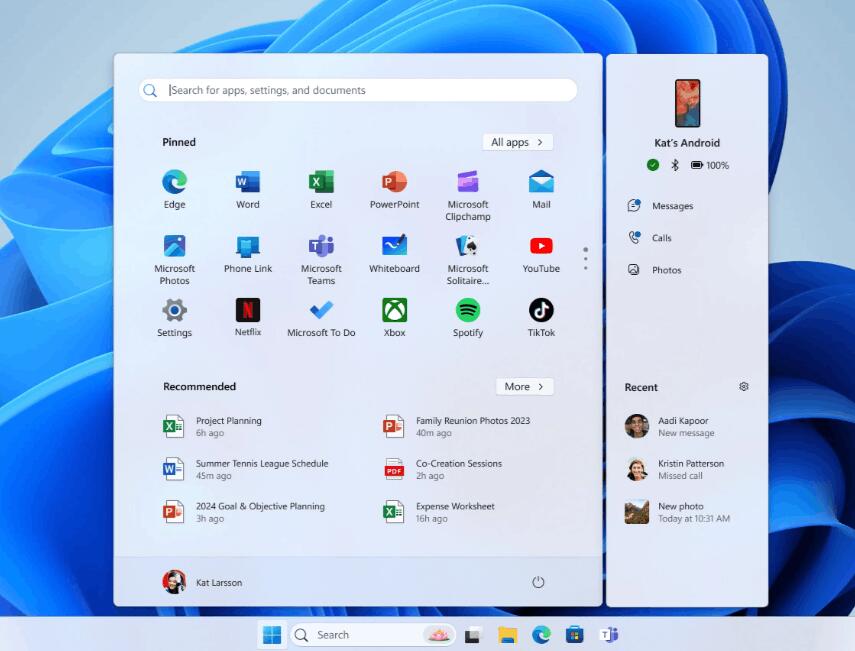
Phone Link Companion For Start Menu. Image credits: Microsoft
The feature is internally known as "companions". Such a sidebar can be implemented for any of the Store apps. And its position is defined by the developer. E.g. it can appear to the left of the Start menu.
Other changes
- The Start menu will show jump lists when you right-click an app.
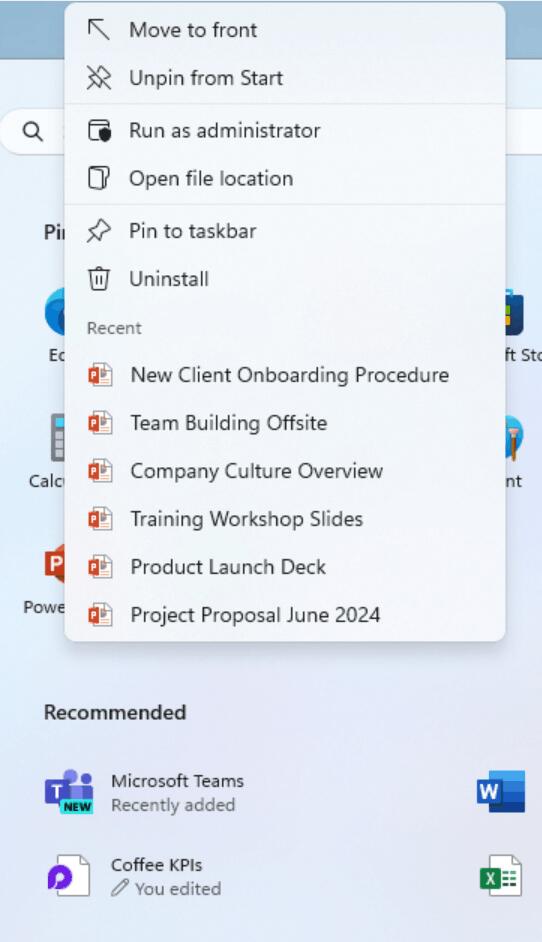
Image credits: Microsoft - The new user account menu has been updated to include a prominent Sign out button.
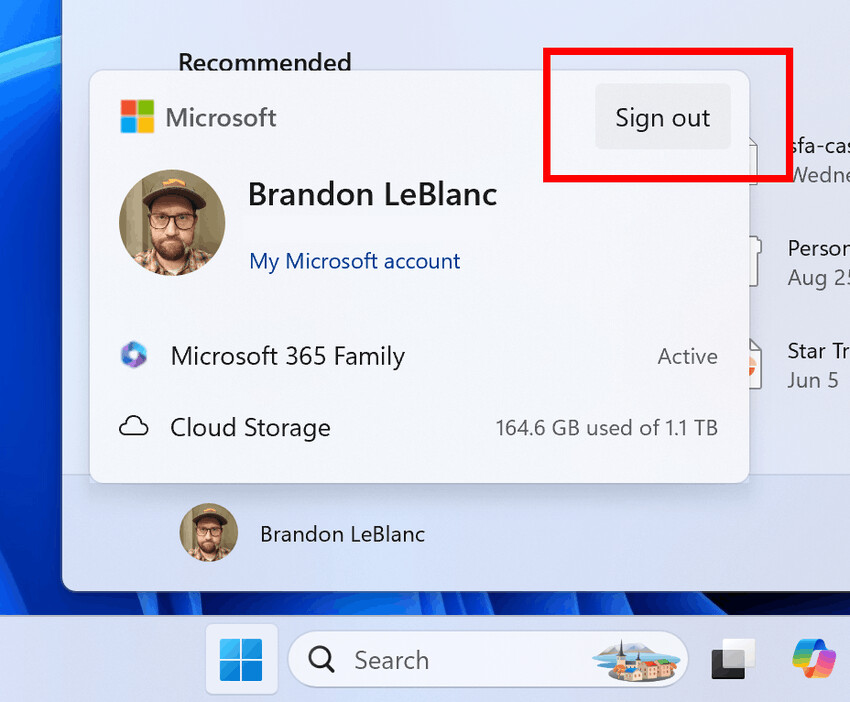
Image credits: Microsoft - The Recommended section of the Start menu can now display apps in groups.
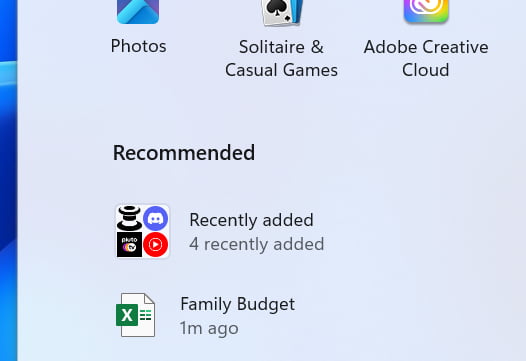
Image credits: Microsoft - You can share local files directly from Search results.
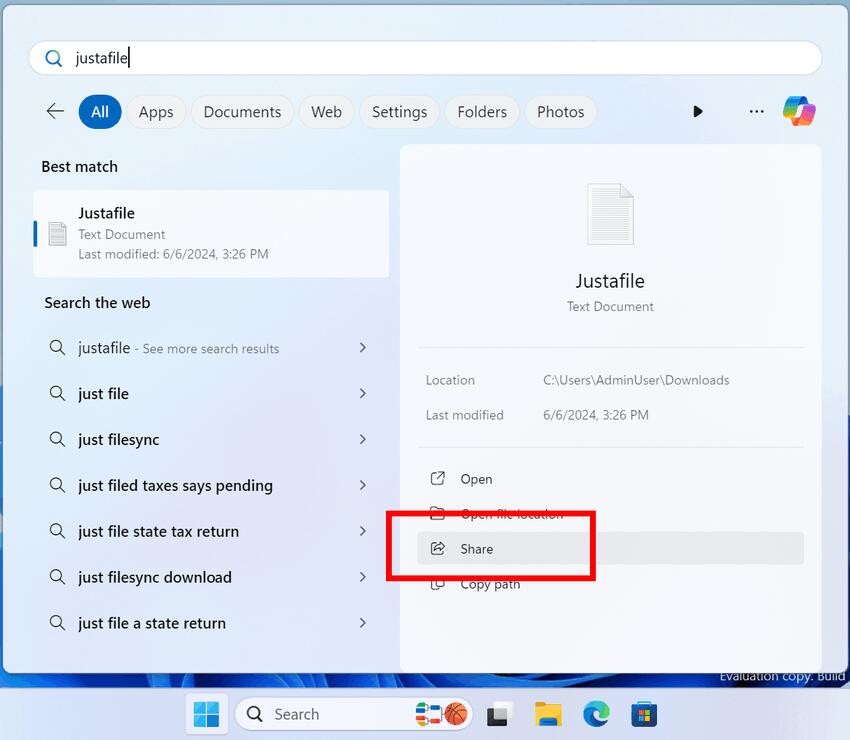
Image credits: Microsoft
Quick Settings
The interface of the Quick Settings menu on the taskbar has been slightly updated. It now uses page-by-page navigation, like the list of pinned applications in the Start menu. The buttons can be moved around to keep frequently used functions within easy reach, and you can access all of them thanks to the pagination feature.
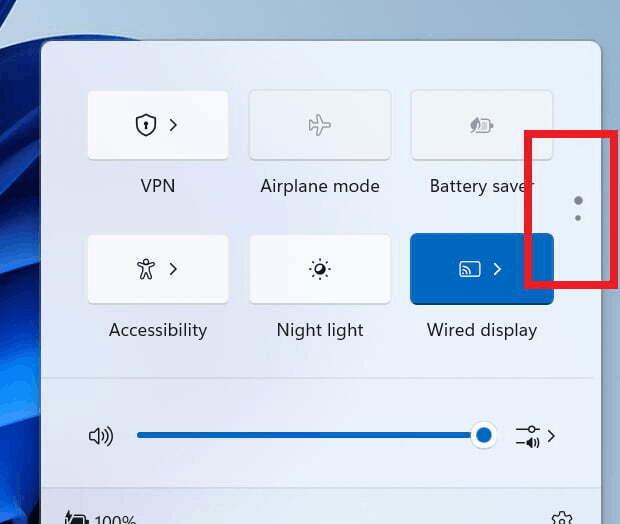
Progress Animation
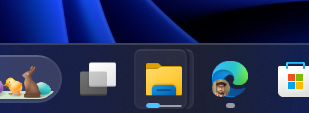
Windows 11 adds a new progress animations for the app icons on the taskbar which a prominent progress bar.
Support for TAR and 7z archives
Windows 11 version 24H2 brings with it the ability to create archives in 7z and TAR formats. You can specify the compression format, method and level of data compression.
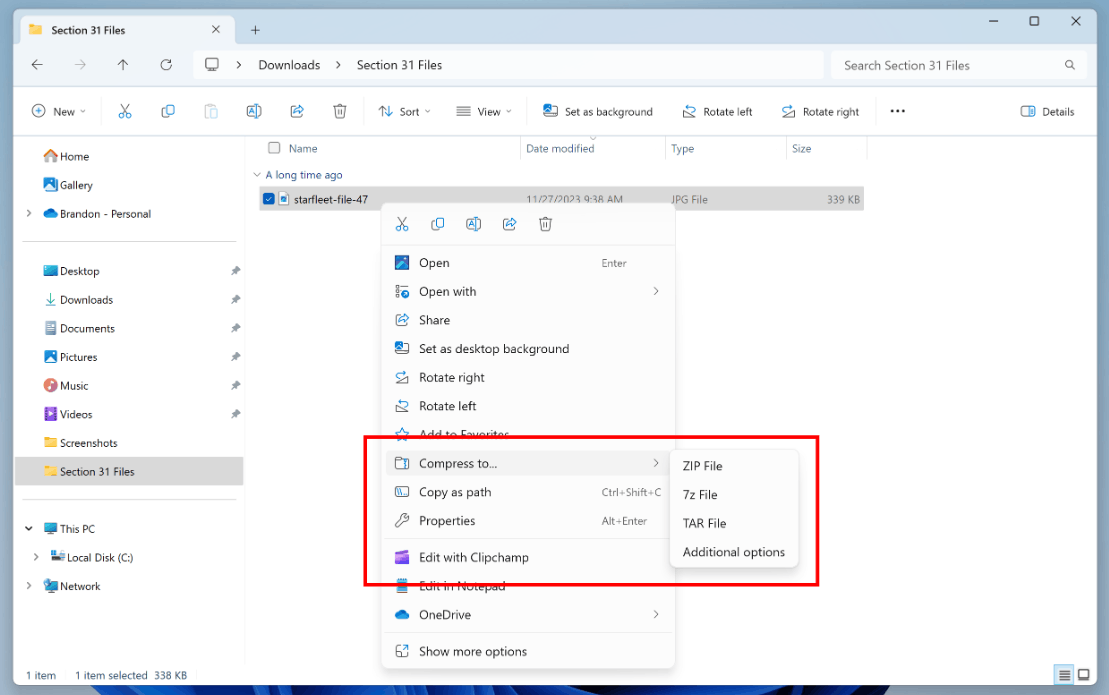
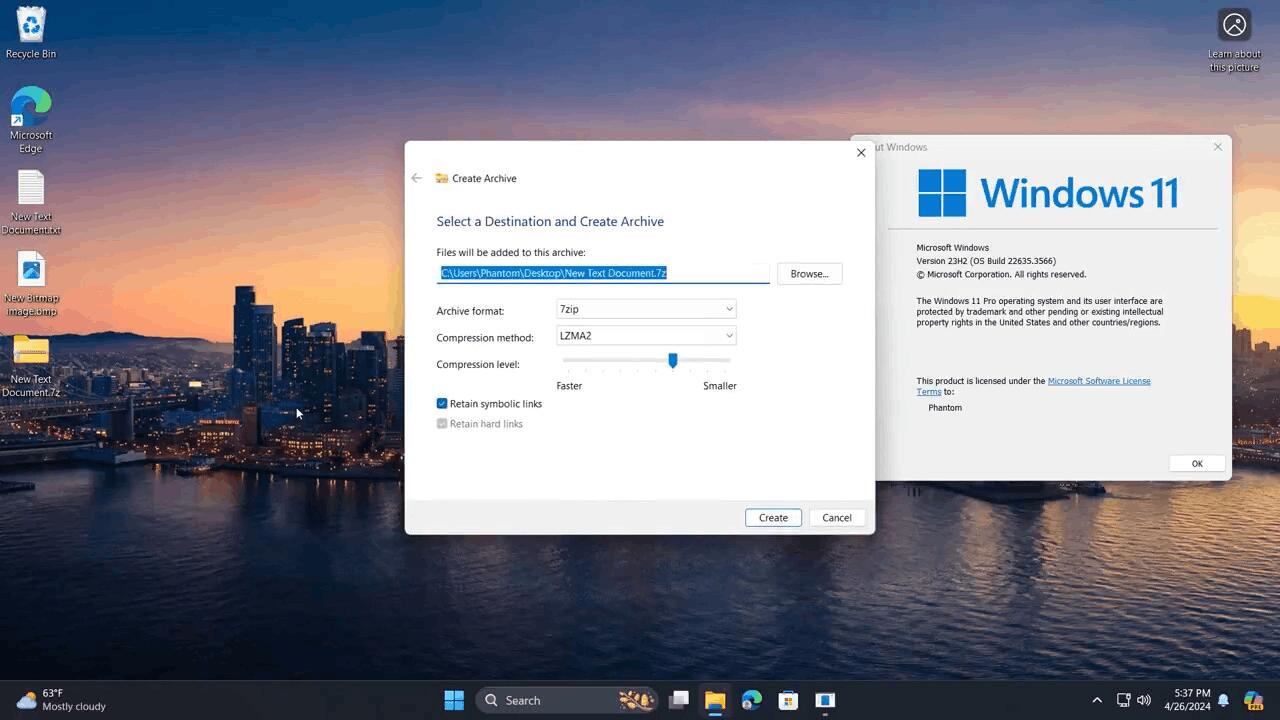
The feature was originally created for Windows 11 version 24H2, but was also backported to older releases like 22H2 and 23H2 with cumulative updates.
The context menu in Explorer has also been slightly updated. The developers decided to add text captions to the icons of such actions as Cut, Copy, Paste, Rename, Share, and Delete.
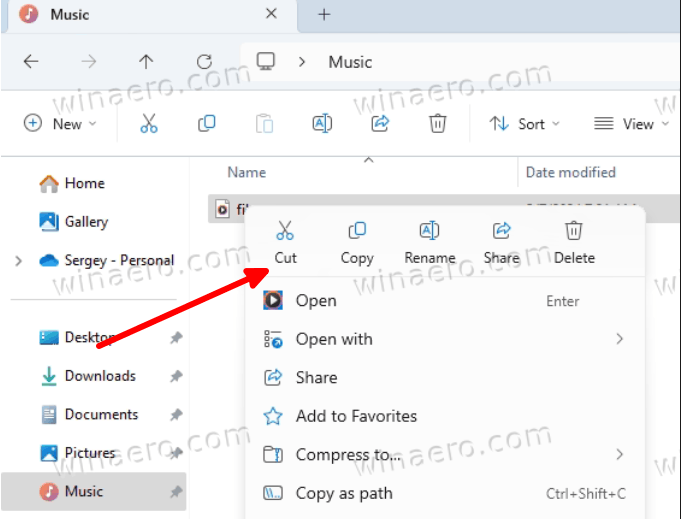
App thumbnails in the taskbar
The taskbar now supports navigation by the first letter of an application. If the keyboard focus is on the taskbar (WIN + T), you can press any letter to quickly jump to an open or pinned application whose name begins with that letter. Pressing the same letter again will switch between applications that begin with that letter, if there are several. If you have taskbar grouping disabled, navigation by the first letter will take into account the window name, not the application name. And when you press the Home and End keys, the keyboard focus will move to the first and last elements of the taskbar, respectively.
The taskbar now shows the name of the active Explorer tab and the total number of tabs when hovering over the Explorer icon on the taskbar or using the Alt+Tab keyboard shortcut. This allows you to easily navigate through open tabs and quickly switch between them.

Abbreviated time and date
Windows 11 24H2 lets you display a more concise version of the time and date. For instance, instead of "10:15 AM 10/3/2024," you can opt for a simpler format like "10:15 10/3." To adjust this setting, go to Settings > Time & language > Date & time, click on "Show time and date in the System tray," and check the box for "Show abbreviated time and date."
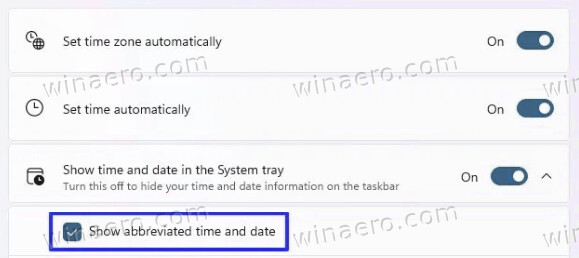
Remove the Notification Bell icon
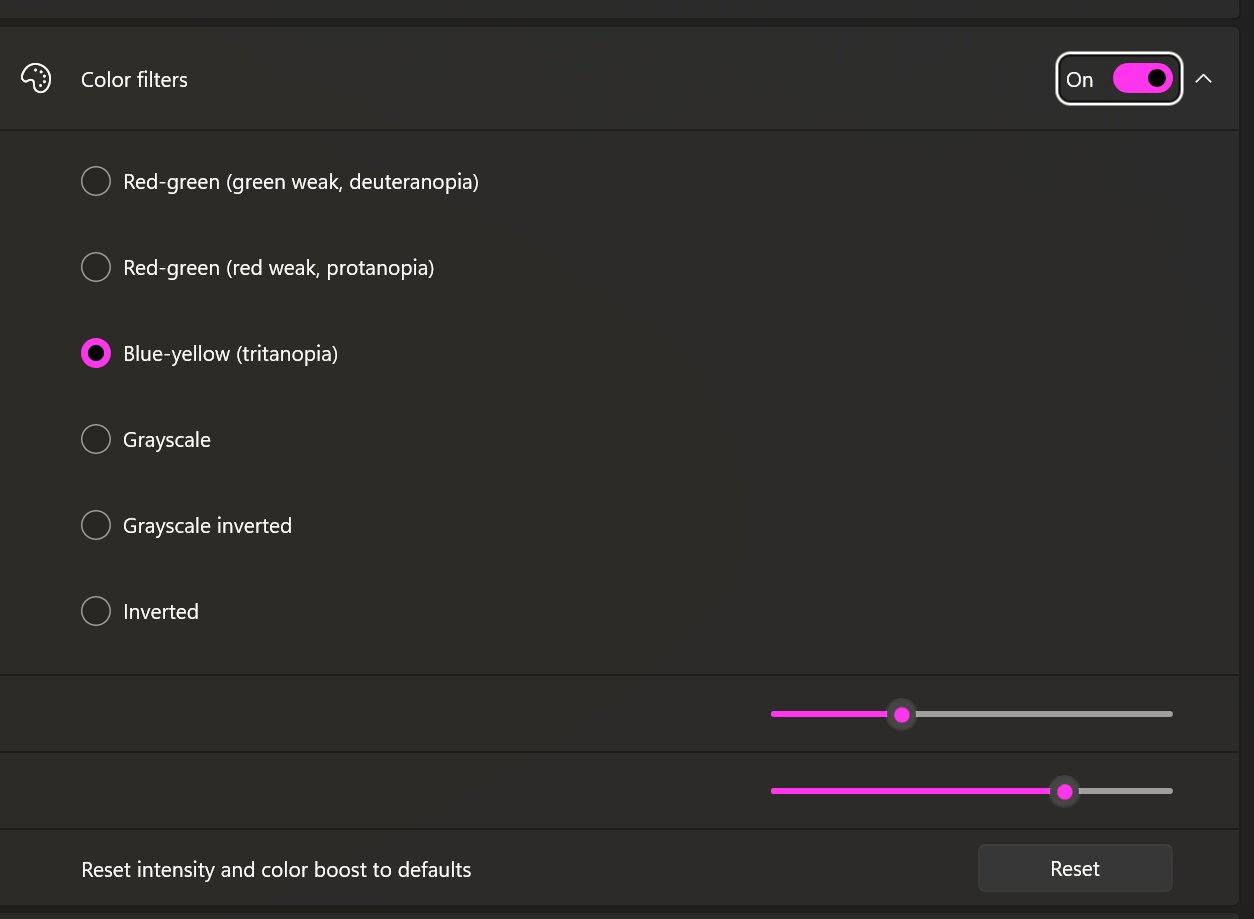
You can disable the Notification bell button from the taskbar. For that, navigate to Settings > System > Notifications. Under the "Notifications" section, remove the checkmark from the "Show notifications bell icon" option hide the Bell icon in the taskbar.
Wireless access to files on Android smartphone
Microsoft continues to improve Windows 11 integration with mobile devices. Version 24H2 introduces a new feature that provides wireless access to files and folders on a connected Android smartphone via File Explorer.
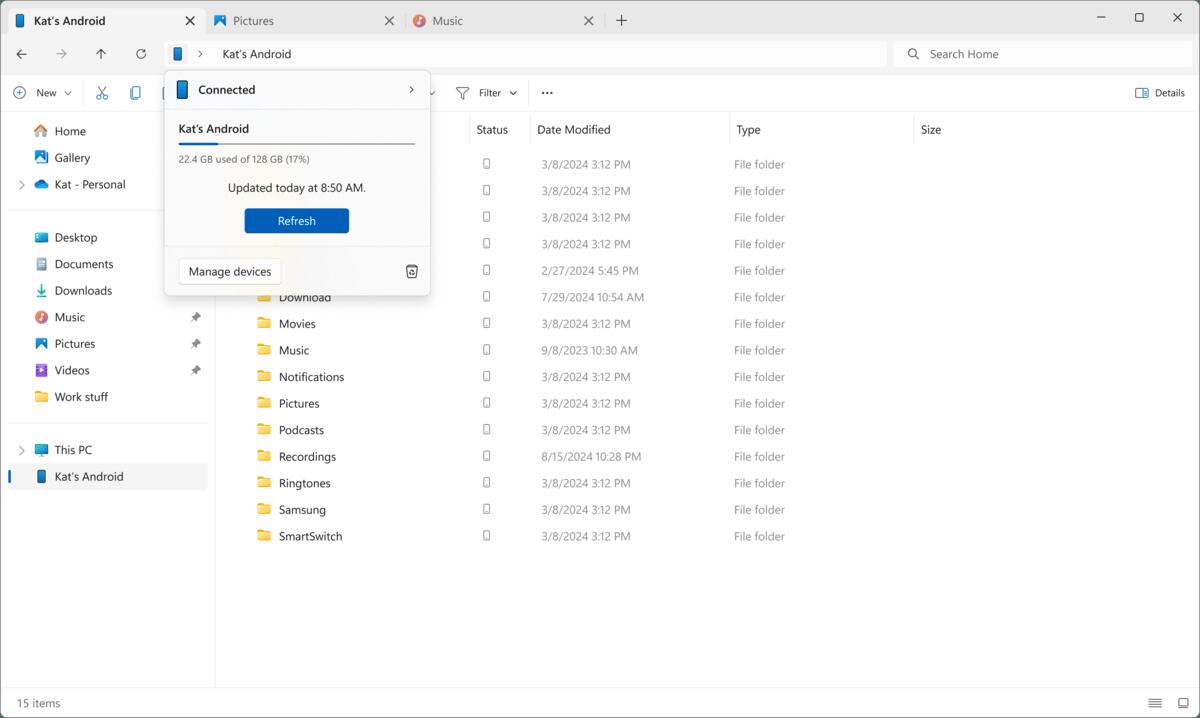
You can view the contents of folders, open files on your computer, copy files from Android to PC and vice versa, rename files and folders, move them, and even delete unnecessary files.
To enable this feature, go to Settings -> Bluetooth & Devices -> Mobile Devices, click on the Manage Devices button and allow the computer to access your smartphone. After that, an option will appear in the window that enables access to the smartphone via Explorer.
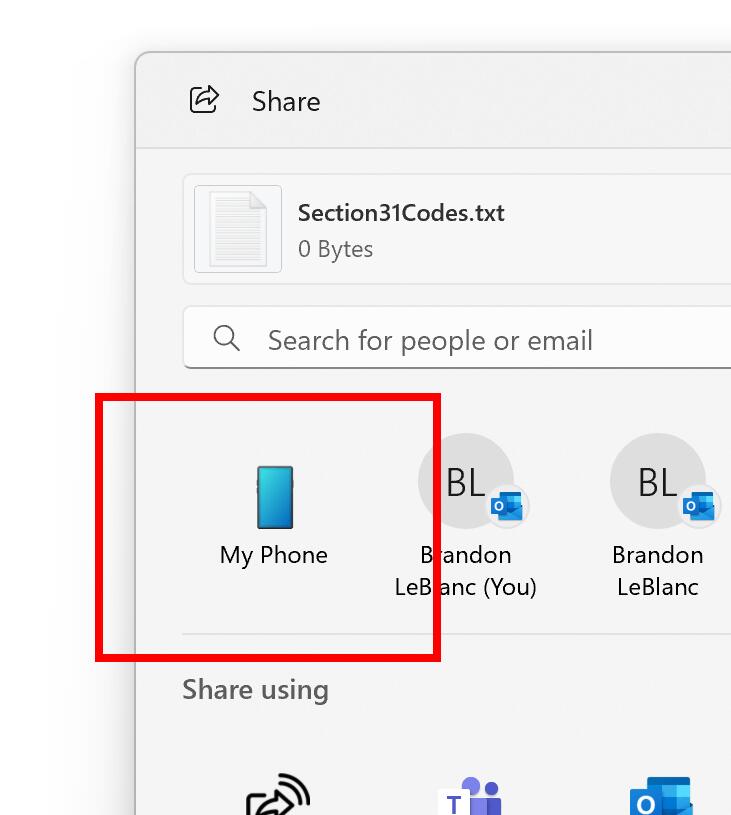
Microsoft has added the ability to quickly share content with your Android device from the Share window. For the feature to work, you need to link your Android device to Windows using the Link to Windows app for Android and Phone Link for PC.
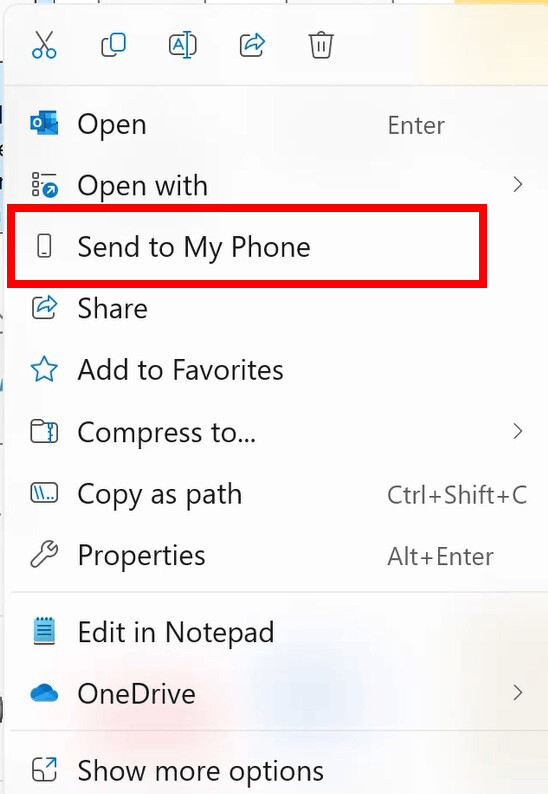
A counterpart option, "Sent to My Phone", is available in the File Explorer's right-click menu.
Media controls on them Lock screen
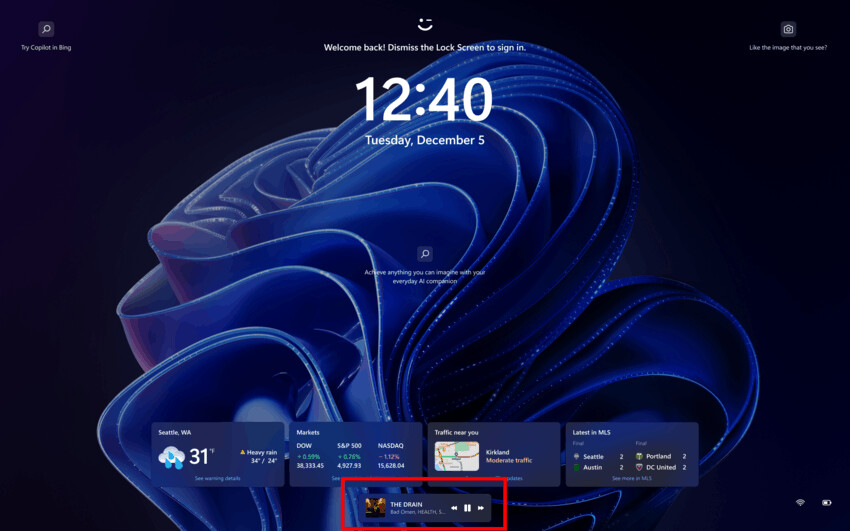
Media controls now appear at the bottom of the lock screen when playing media. It is pretty useful when you need to manage some video or audio playing in the background when your device is locked.
Settings
- Various dialog windows like Rename This PC, Delivery optimization, Storage Spaces etc has been updated to match the design of the OS.
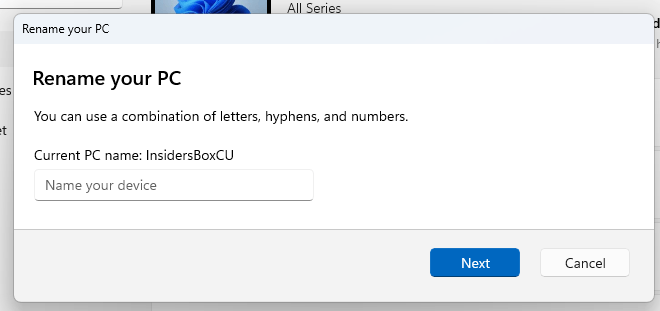
Image credits: Microsoft - Settings > System > Storage > Advanced storage settings > Storage Spaces now comes with an option to detach VHD(X) files.
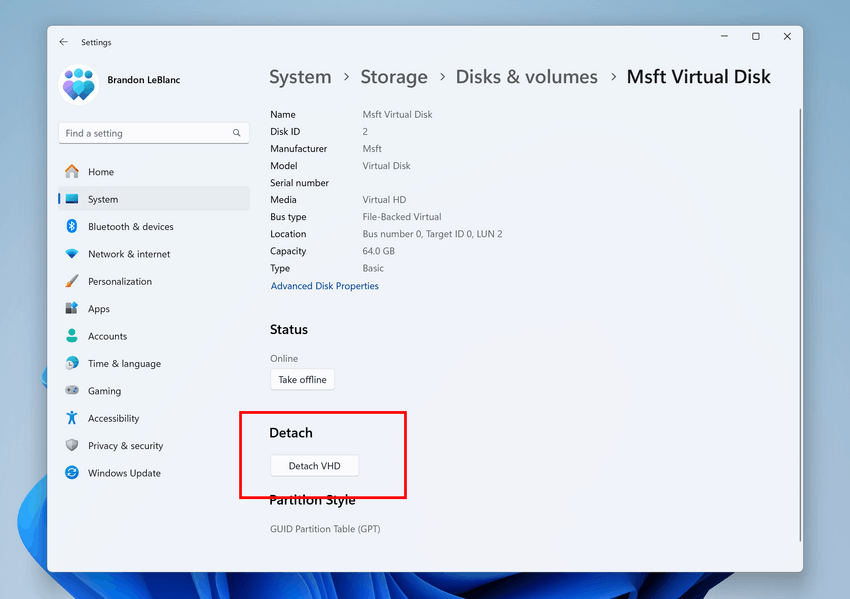
Image credits: Microsoft - The Settings > Accessibility > Color filters page now has extra options to adjust filter intensity, color boost, and the Reset button.
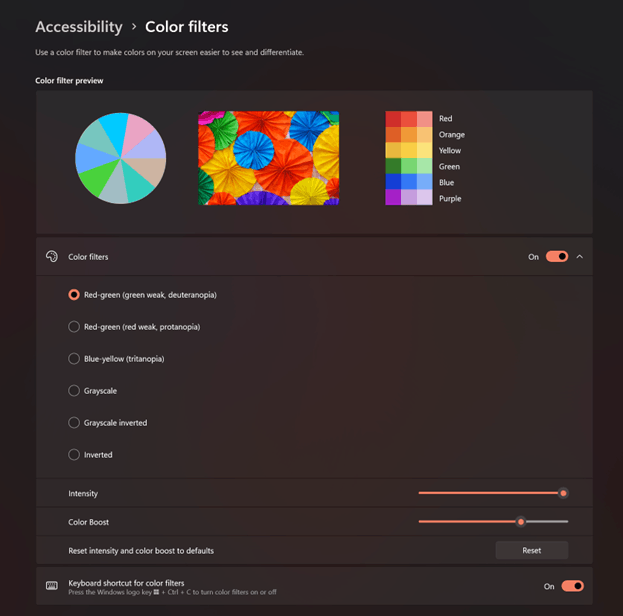
Image credits: Microsoft - On the Personalization > Colors page, Windows 11 24H2 disables the accent color for the light system theme. The option Show accent color on Start and taskbar remains only available in the dark theme.
- The Personalization > Background page allows setting HDR *JXR files as your desktop wallpaper.
- You can now remove your activity history from the Settings > Privacy & security > Activity history page.
- The Settings > System > Sound page now includes two new Microphone tests wit the Default and Communication modes.
- Settings > Privacy & security > Location introduces new options that allow you to manage which apps can access nearby wireless networks to pinpoint your location.
Sudo for Windows
Windows 11 version 24H2 introduces support for the sudo command, which is well known to Linux users. Sudo is a simple and effective way to elevate the execution rights of a command, meaning it can be run as an administrator. Simply type sudo before the command you want to run as an administrator, and Windows 11 will do the rest.
The feature is disabled by default. To enable the sudo command, go to Settings -> System -> Developer Options. Then configure the command by selecting one of the modes in the drop-down menu.
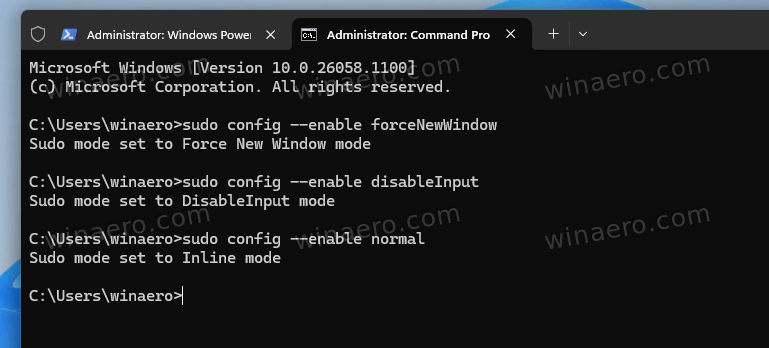
Hardware and drivers
Mouse Scrolling Direction
The new setting, Scrolling Direction, can be found in the Bluetooth & devices > Mouse page in the Settings app. By default, the standard scrolling direction is set to "down scrolls down." This is the familiar option for most users. If you prefer inverted mouse wheel operation, select the second option, with which down scrolls up.
You will also find a newly added option "Enhance pointer precision" on the same page. It allows you to change the mouse sensitivity based on how fast you move the mouse.
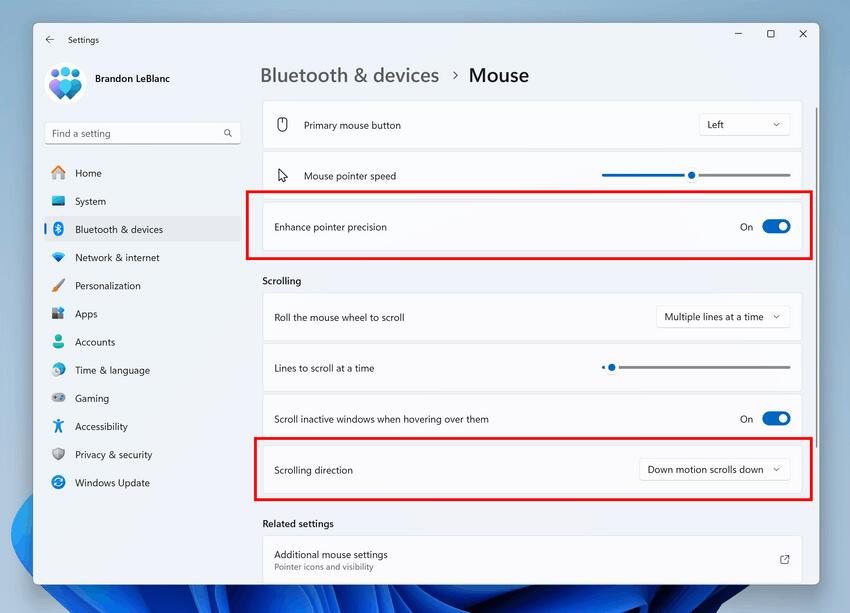
In fact, the OS has always included an option to alter the scrolling direction on the touchpad, yet only now is such an option emerging for the mouse. Earlier, in most cases you had to use a third-party driver for that.
Wi-Fi 7
Windows 11 24H2 adds support for Wi-Fi 7, which provides much higher transfer speeds, more reliable and power efficient.
In addition, the list of wireless network now includes an option to refresh the list of available SSIDs.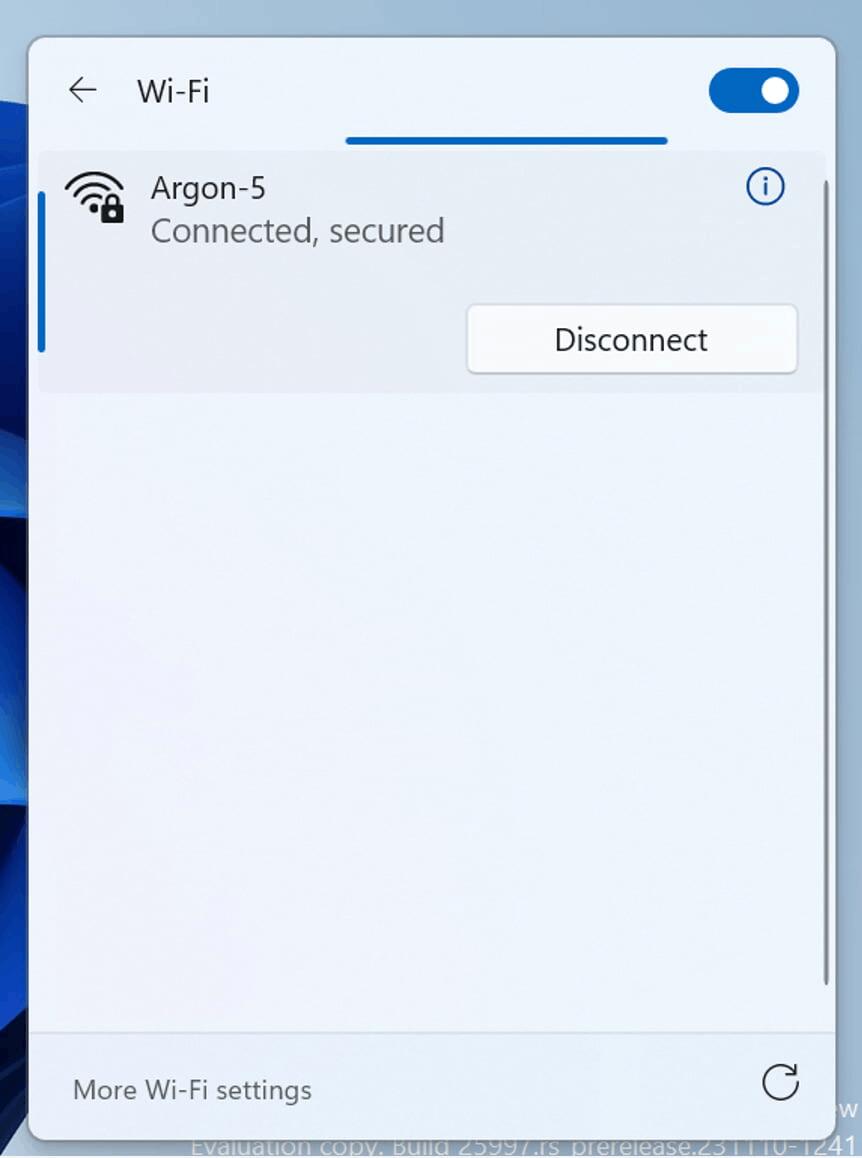
Energy saving
A new feature, Energy Saver, reduces the computer's energy consumption by adjusting performance. It is available for both laptops and desktop computers. The feature can be useful if you do not need maximum computer performance, for example, when browsing the web or working with documents.
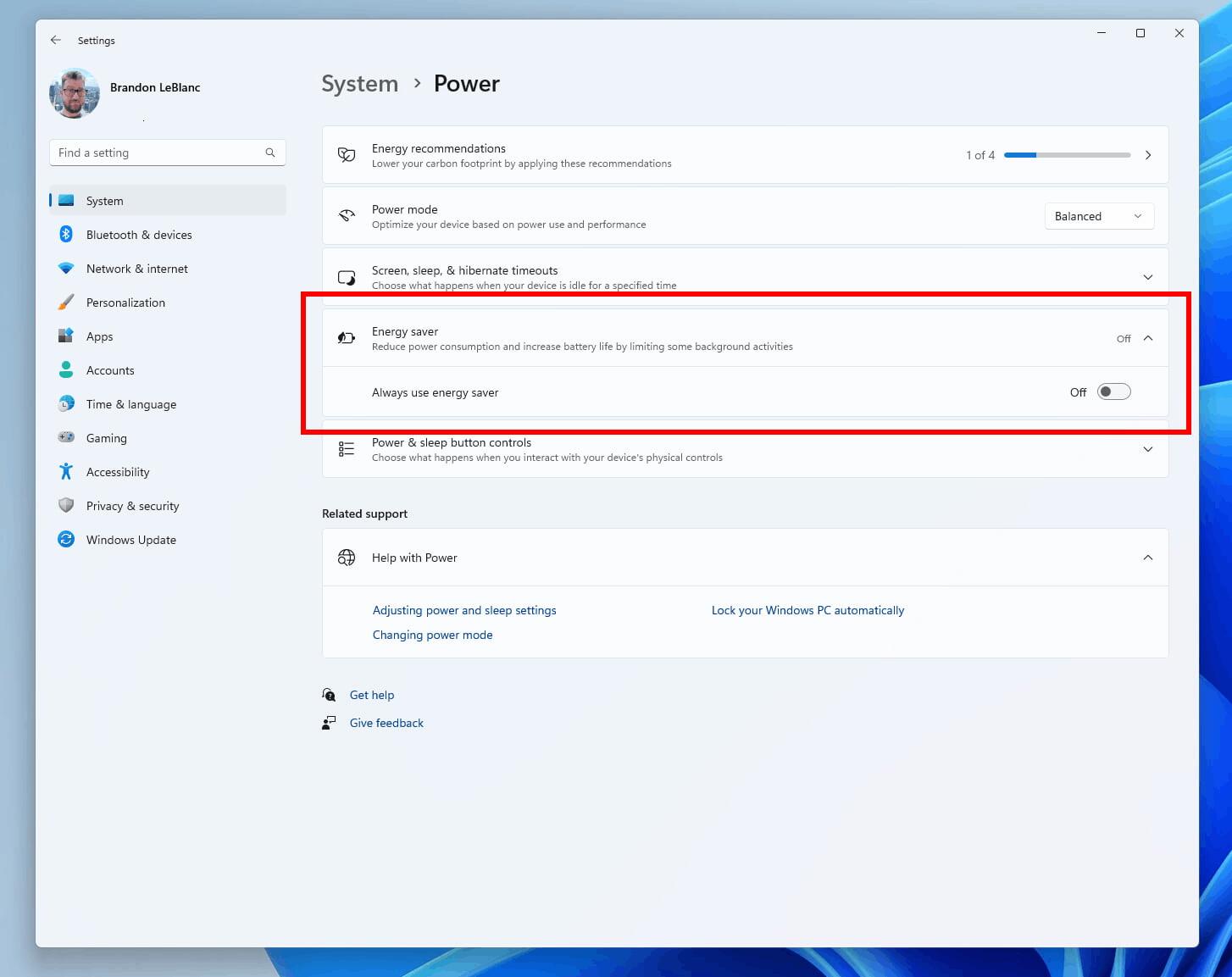
Energy recommendations
On PCs with HDR displays, Microsoft now recommends turning off HDR to save power. The recommendation will start appearing under Settings > System > Power > Power saving recommendations.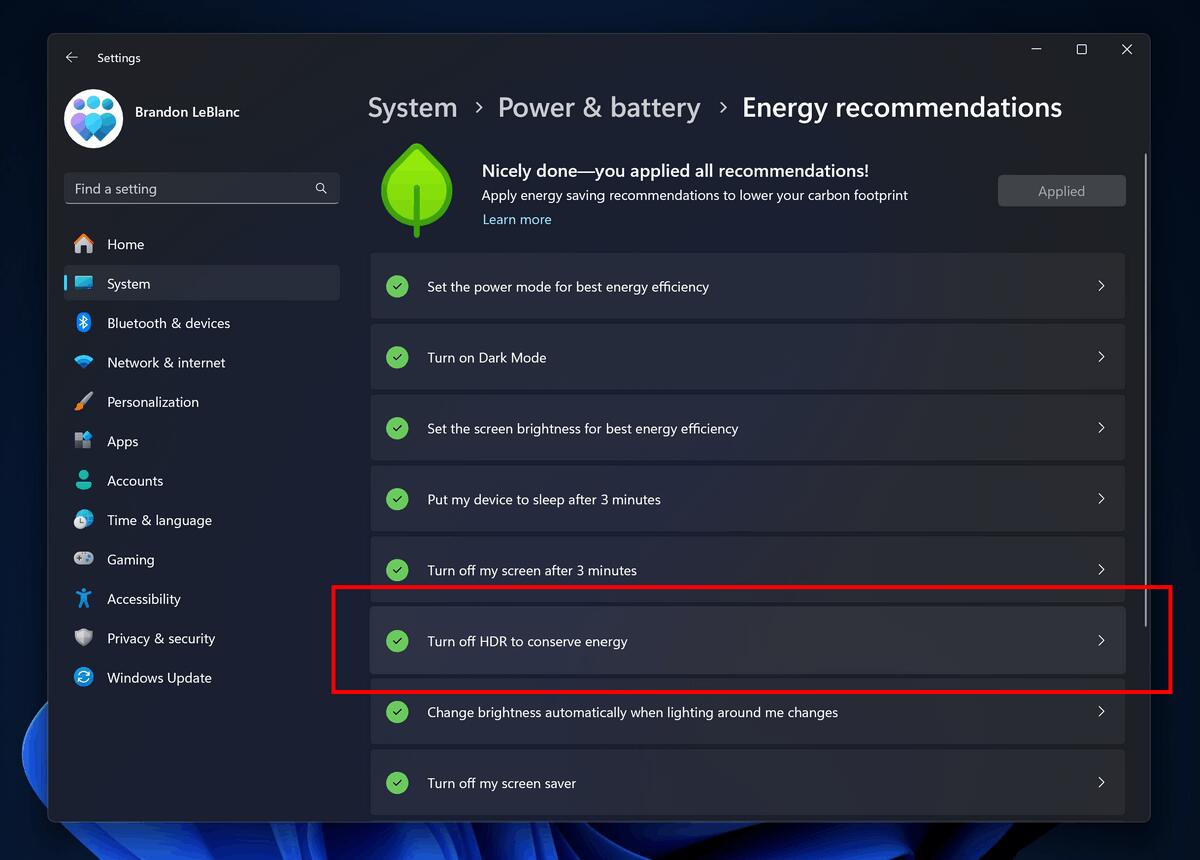
Power Buttons
In addition, you can now configure the actions of the power buttons and the system behavior when closing the laptop lid in the new Settings application in addition to the classic Control Panel.
Finally, Windows 11 version 24H2 lets you set different power modes on your laptop, one for plugged in and the other one for when running on battery power.
Graphics improvements
Microsoft has updated the design of the Graphics page in the Settings app to better match the visual style of Windows 11.
In addition, a new Optimization for windowed games has appeared. It allows you to reduce frame rendering latency and provides support for dynamic screen refresh rate and Auto HDR in games running in windowed mode.
Device Encryption
Windows 11 24H2 will automatically encrypt your disks with BitLocker on both Pro or Home editions and push the recovery key to your Microsoft account when you install it. It is possible to disable the Device Encryption as described here.
Windows Update
- Windows Update introduces the hot patching feature that significantly reduces the number of reboots to install and apply updates. The method applies to security updates in the first place to keep your device protected.
- Checkpoint cumulative updates will allow you to get features and security enhancements via the latest cumulative update through smaller, incremental differentials containing only the changes since the previous checkpoint cumulative update. This means that you can save time, bandwidth, and hard drive space.
Removed features and apps
Windows 11 24H2 removes the following apps and features:
- Mixed Reality
- Defender Application Guard
- WordPad (you can easily restore it).
- Mail and Calendar
- Cortana
- Movies & TV
- AC-3 codec
- DirectAccess
- Driver Verifier GUI
Other changes
- Windows 11 24H2 includes support for hearing aids via Bluetooth Low Energy Audio (LE Audio).
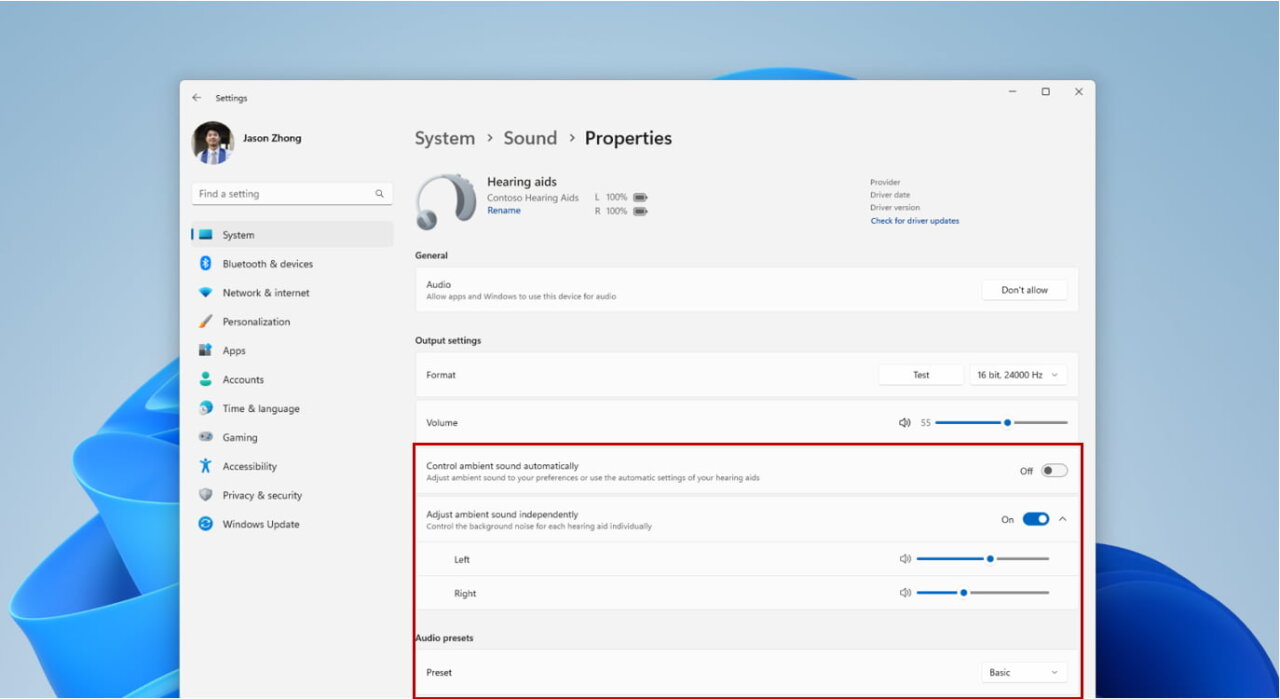
Image credits: Microsoft - The Setup program and OOBE now match the design of Windows 11.
- PRISM, the emulator for running x86 apps on ARM, now comes with the significantly improved performance.
- Windows Kernel now integrates Rust.
- The Registry editor allows limiting the search depth with the current subkey only.
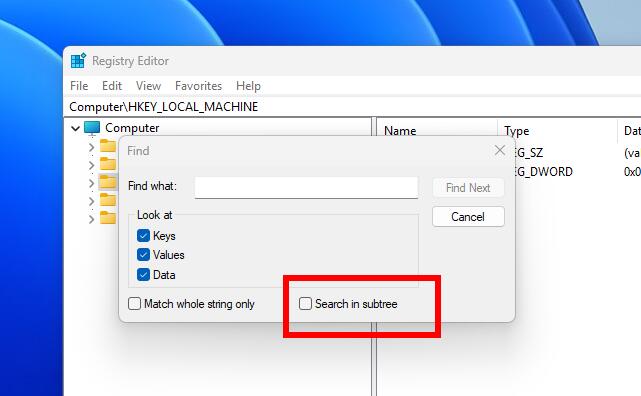
Image credits: Microsoft
Support us
Winaero greatly relies on your support. You can help the site keep bringing you interesting and useful content and software by using these options:

When I test installed 24H2 a few days ago, BitLocker was not on, on my computer. However, I installed with secure boot turned off and created ISO with rufus that may have done something. TPM was on. I installed without a Microsoft account as well. I always have secure boot off as I run a lot of Linux on it and it is usually better then.
Rufus does magic!
“will automatically encrypt your disks with BitLocker on both Pro or Home editions and push the recovery key to your Microsoft account when you install it”
LOL – yeah. That sounds like a great idea to push upon people.
The other features in this “major” update are actually pretty minor and cosmetic, except for maybe the AI stuff which I couldn’t care less about.
Start menu jump lists still aren’t working for me. Which build number are you on? I’m all the way up to 26100.2152 via the Release Preview channel, and I still don’t have the feature.
Is there any way to manually enable this feature? I’ve been waiting for it for years.